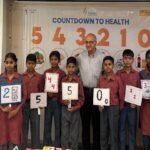New Delhi, February 1, 2018: The Union Budget presented today elicited a range of reactions from pundits and analysts. This is MicroSave’s take on the budget from the perspective of financial inclusion.
Healthcare:
The National Health Protection Scheme (NHPS) is a major step up towards India being able to offer credible health care to its poor. It builds upon the overall insurance driven social security framework of the Jan Suraksha schemes and is a welcome step.
Health incidences are known to push people below the poverty line. Each year, some 150 million people worldwide face financial catastrophe due to spending on health—and according to a 2010 study, more than one-third of them live in India. The number of Indians falling below the poverty line (BPL) due to health spending is estimated at 63 million people: almost 7% of the nation’s population.
The National Health Protection Scheme (NHPS) which aims to provide health insurance cover of Rs 5 lakh to 10 crore poor families, benefitting 50 crore people across India, is expected to address this severe health-related poverty issue. NHPS will be the largest government-funded health insurance scheme anywhere in the world. It will also be a major step towards providing Universal Health Coverage, a promise made by the government. Under NHPS, people will get medical treatment in secondary and tertiary hospitals.
As per actuariesindia.org, Less than 15% of India’s 1.25 billion people are covered by health insurance, largely people in the organised sector and government employees. At any given point in time, more than 50 million people, in India, are on medication for major sickness. As against this, the share of public financing in total health care is just about 1% of GDP. Over 80% of health financing in India is through private means, much of which is by way of out-of-pocket payments.
NHPS is a major step up towards India being able to offer credible healthcare to its poor. It builds upon the overall insurance driven social security framework of the Jan Suraksha schemes and is a welcome step. Currently, the Union government provides Rs 30,000 as health insurance for poor families under Rashtriya Swasthya Bima Yojana (RSBY) which is insufficient to cover most medical procedures and ever-rising health care costs. Hence, a substantial coverage amount of Rs. 5 Lakhs (USD 7500+) will change the face of access to health care in India and will provide real incentives to health care providers to raise their standards of services.







